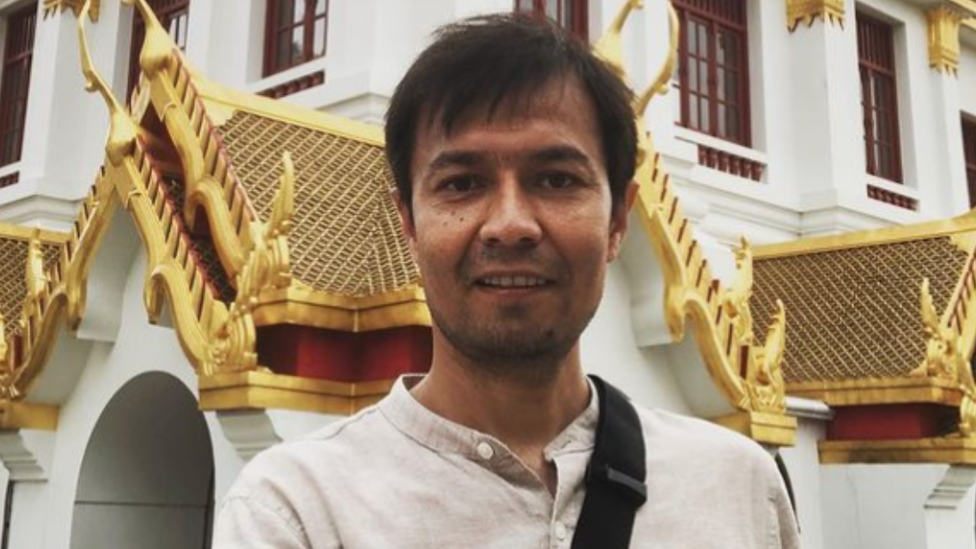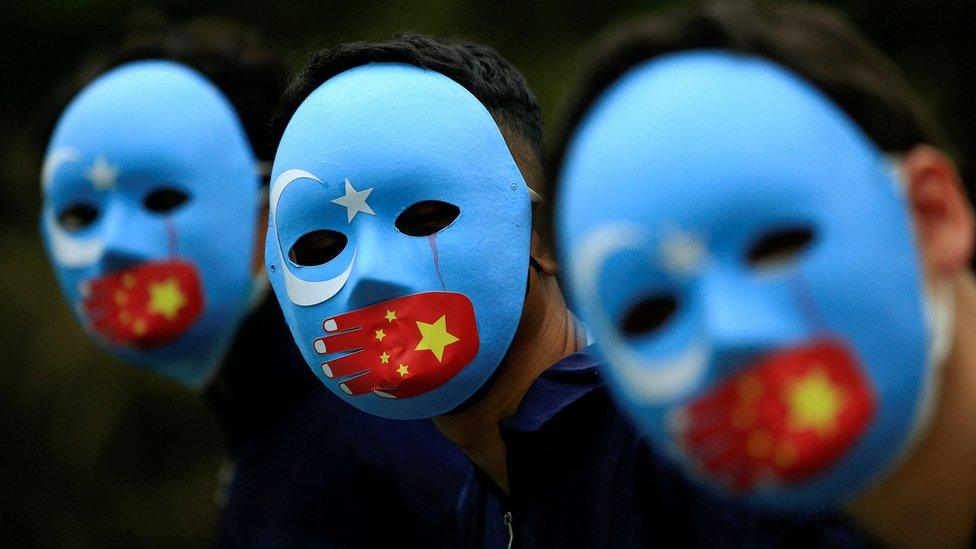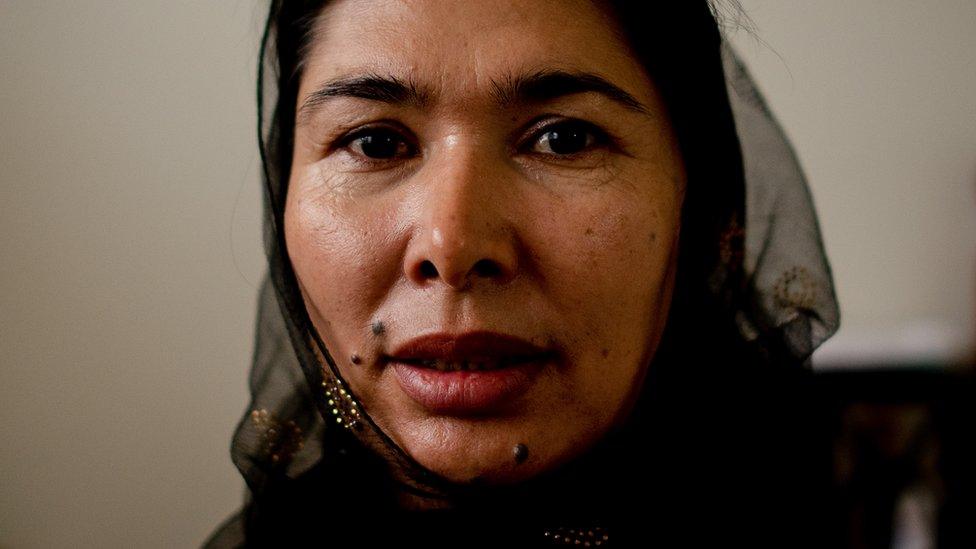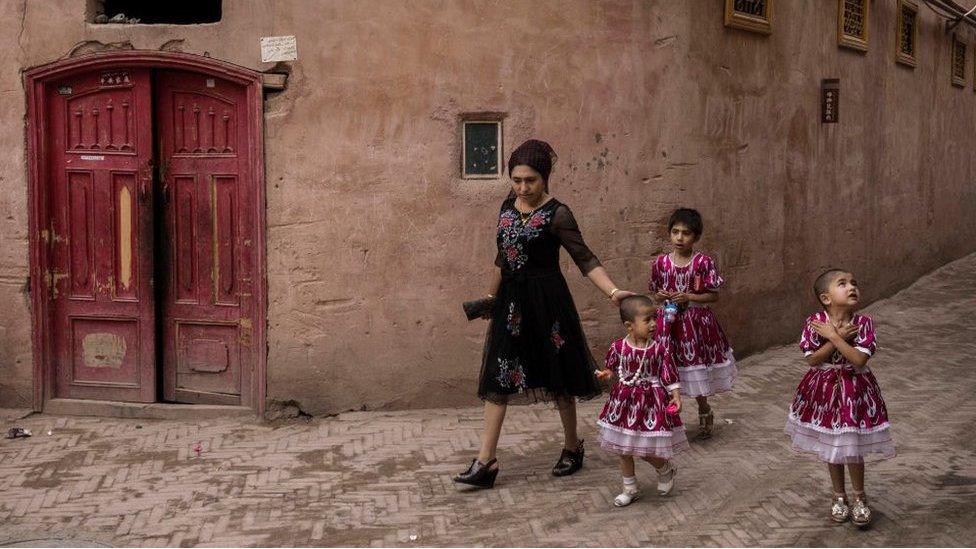Abuduwaili Abudureheman: Hong Kong denies detaining Uyghur student
- Published

Amnesty said Abuduwaili Abudureheman told a friend he had been interrogated by police at Hong Kong's airport
Hong Kong has denied detaining a Uyghur scholar who human rights activists say went missing after arriving in the city earlier this month.
Abuduwaili Abudureheman texted a friend on 10 May saying he was being interrogated by police at the airport.
He has not been heard from since, his friends told Amnesty International.
The rights group has demanded Hong Kong reveal his whereabouts, but the government said such a call was slander and "groundless and unfounded".
Hong Kong authorities also said there was no record that Mr Abuduwaili had arrived in the territory or was denied entry.
The Chinese government has been accused of a brutal crackdown against the Muslim minority Uyghurs, which it denies.
Mr Abuduwaili, who was born in Xinjiang, had been based in South Korea for the past seven years where he had earned a PhD in sports industry and leisure. He had flown from Seoul to Hong Kong to visit a friend, Amnesty said.
The group said it had received information that Mr Abuduwaili was on a "watch list" of Uyghurs and other Muslims from the north-western Xinjiang region, who had travelled outside of China.
Amnesty said it had recorded numerous cases of Uyghurs detained in China and abroad based solely on having a history of foreign travel.
"The unknown fate of Abuduwaili Abudureheman is deeply worrying, given the background of crimes against humanity committed against Uyghurs by the Chinese government in Xinjiang, and its ongoing pursuit of Uyghurs who have travelled overseas," said Alkan Akad, an Amnesty researcher.
The US, UK and international human rights monitors have accused Beijing of detaining about one million Uyghurs in so-called "re-education camps" in Xinjiang, , separating children from their families and breaking their cultural traditions.
The region is also cloaked in a pervasive network of surveillance, including police, checkpoints, and cameras that scan everything from number plates to individual faces.
China has also been accused of targeting Muslim figures and banning religious practices in Xinjiang, as well as destroying mosques and tombs.
In a landmark report last year, the UN accused China of "serious human rights violations" in Xinjiang that "may constitute international crimes, in particular crimes against humanity".
It also urged China to release "all individuals arbitrarily deprived of their liberty".
China called the UN report a "farce" arranged by Western powers.
Update 31 May: Amnesty International issued a correction to its report, saying Abuduwaili Abudureheman was "accounted for" and had since told the group he had not travelled to Hong Kong.
- Published1 September 2022

- Published2 February 2021

- Published7 June 2021
